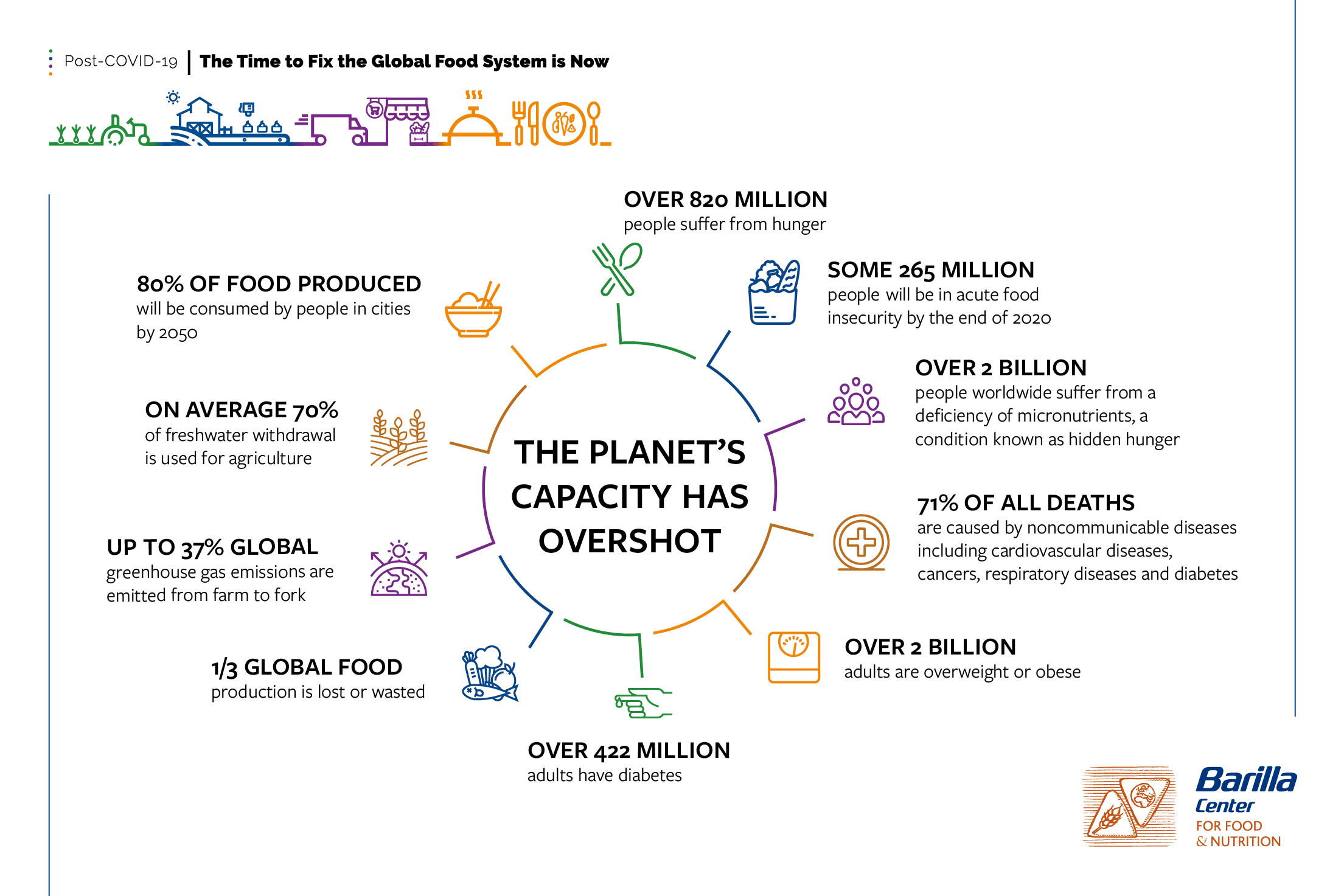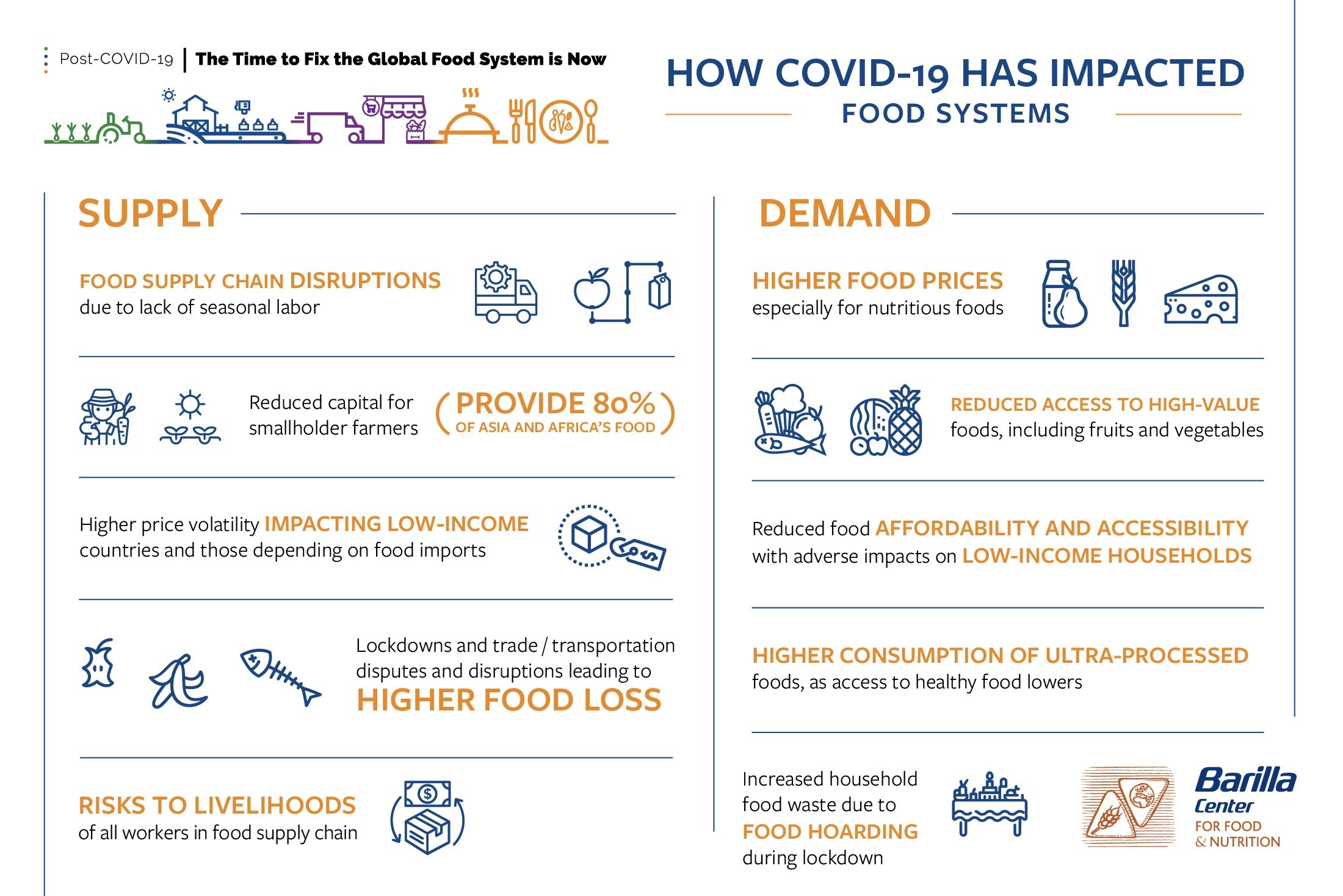
Food is linked to environmental and human health and is thus an extraordinary leverage to improve both. It’s time to rethink and reset our food systems. The analysis by Marta Antonelli, Gabriele Riccardi and Riccardo Valentini.
“The Covid-19 pandemic has demonstrated that the health of humans, animals and plants are inextricably linked, and share a common future. Transforming economies and societies to mitigate, prepare and respond to future shocks and crisis is a globally shared imperative, as no country is immune from these challenges or can overcome them alone. Re-setting food systems is a required and integral part of this pathway. Global standard on food security, safety and health are essential as we move forward”, Dr. Marta Antonelli (Head of Research at the Barilla Foundation), Prof. Gabriele Riccardi (University of Naples “Federico II”) and Prof. Riccardo Valentini (University of Tuscia and RUDN University of Moscow; CMCC Foundation Strategic Advisor) say on the Guardian.
 Increasing rates of deforestation, biodiversity loss, extinction of species, water crises all over the world: the authors underline that COVID-19 is just the latest manifestation of a broken relationship between humans and nature coupled with high-risk human behaviours, such as wet and wildlife trade markets, intensive livestock conditions, which create favourable conditions for the emergence of zoonotic epidemics, which have been increasing over the past two decades.
Increasing rates of deforestation, biodiversity loss, extinction of species, water crises all over the world: the authors underline that COVID-19 is just the latest manifestation of a broken relationship between humans and nature coupled with high-risk human behaviours, such as wet and wildlife trade markets, intensive livestock conditions, which create favourable conditions for the emergence of zoonotic epidemics, which have been increasing over the past two decades.
Food systems are environmentally, socially and economically dysfunctional worldwide. The spread of the COVID-19 pandemic has further demonstrated the fragility of the global food systems, but offers the opportunity to reset the way we produce, distribute and consume food in a long-term sustainable perspective. Fostering healthy and sustainable diets, respectful of local traditions and cultures, might reduce the incidence of diet-related diseases, disabilities and deaths, as well as prevent land clearing, biodiversity loss, water exploitation.
 Authors stressed in particular that “the risks posed by global warming, environmental degradation, non-communicable diseases, zoonotic epidemic outbreaks and the likely resulting food and humanitarian crises, can be mitigated only by kick-starting a new global economy that has sustainability at its core through global standards and targets for food systems (security, safety, health). We need stronger governance of the global commons – land, water, air, and forests. Solutions will require multi-disciplinary and multi-stakeholder skills, collaboration, and approaches; better livelihoods and remuneration conditions for farmers (who are key stewards of the world’s natural resources); sustainable and transparent corporate behaviours; major shifts in finance and investments; sound policy reforms; and more responsible consumption patterns. We must address our global food systems now before it’s too late.”
Authors stressed in particular that “the risks posed by global warming, environmental degradation, non-communicable diseases, zoonotic epidemic outbreaks and the likely resulting food and humanitarian crises, can be mitigated only by kick-starting a new global economy that has sustainability at its core through global standards and targets for food systems (security, safety, health). We need stronger governance of the global commons – land, water, air, and forests. Solutions will require multi-disciplinary and multi-stakeholder skills, collaboration, and approaches; better livelihoods and remuneration conditions for farmers (who are key stewards of the world’s natural resources); sustainable and transparent corporate behaviours; major shifts in finance and investments; sound policy reforms; and more responsible consumption patterns. We must address our global food systems now before it’s too late.”
Read the complete article on The Guardian.
From farm to fork: 10 bold and interdisciplinary actions to finding ways to nourish both people and the planet today and in the future.


